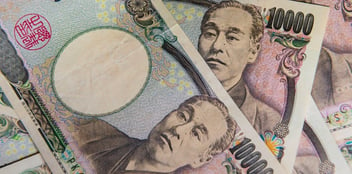Stock market prices have been creeping upwards in recent weeks, but in the forex world, traders are seeking refuge in safe haven currencies. Although the stock markets are anticipating positive developments, we won’t know who’s right until a few months from now.
Could it be that the economic damage is not quite as bad as we think? We had some hopeful news in the past few days. Eurostat reported that retail sales in Europe were 17.8% higher in May than in April, for example, which was above the 14% predicted by economists. Not only that, according to Statistics Netherlands (CBS), the country’s national statistics office, inflation in Holland rose from 1.2% in May to 1.6% in June. In theory, the simple fact that companies are successfully able to charge higher prices for goods and services is a favourable development. However, in practice, things may not be as rosy as they seem. The higher retail figures were primarily due to a significant leap in the sale of clothing. Still, there was not much sign of recovery in other segments, such as restaurants and hairdressers. Dutch inflation also rose in response to higher excise duties on tobacco, which made smoking products almost 20% more expensive.
Happy stock market, cautious forex market
Investors have a keen eye for good news. In the Netherlands, the AEX made up for more than three quarters’ worth of losses sustained throughout the Covid-19 crisis, while the American technology stock exchange Nasdaq even reached a record high. On the other hand, the forex world seems to be exhibiting less confidence in a rapid economic recovery. In recent weeks, currencies usually considered to be safe havens in times of financial uncertainty have been rapidly gaining ground. Prime examples are the Swiss franc and the Japanese yen. In comparison to the euro, both currencies reached their highest peak in three years at the beginning of May. However, the euro has also recovered part of these losses, it must be said. Nevertheless, the franc and the yen are once again on the rise.
The dollar is a special case
The dollar has almost always been included in the list of safe currencies, although this has hardly been noticeable in recent months. This may be partially explained by the country’s slump into an even deeper recession than Europe. Due to the absence of reliable social safety nets, a large proportion of the American population has been feeling the impact of the Covid crisis more acutely in their wallets. In addition, the United States is implementing comparatively huge incentive measures, all of which ultimately need to be financed. Former Morgan Stanley economist Stephen Roach recently predicted that the US currency could fall by 35% as a result of current policies.
New wave?
As it stands today, a crash in the dollar of this magnitude is not likely. In fact, if adrenaline continues to flow freely through the financial world as a result of the Covid crisis, the most likely scenario is that the US currency will once again reassume its role as a safe haven. Taking the latest news about the pandemic and the economic figures into account, there is no need for another round of panic. Nevertheless, the outlook is not yet as bright as stock market optimism would have us believe.
Joost Derks is a currency specialist at iBanFirst. He has over twenty years of experience in the forex world. This column reflects his personal opinion and is not intended as professional investment advice.
Topics






